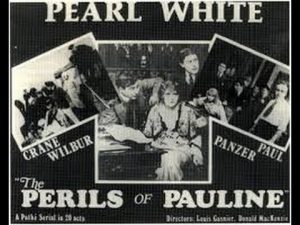Special Collections Spotlight: Springfield Association of Musicians
 One of the many items available in the Digital Collections from Meyer Library’s Special Collections and Archives is a 1919 booklet for the Springfield Association of Musicians union, Number 150 (SC-LA-004), containing their price list, constitution, by-laws, and rules. Membership was exclusive to whites, as stated in the by-laws, and presumably to white men only, judging by the description of a uniform (with trousers, and no description for a women’s uniform). This booklet pre-dates by a few years the invention of “talkie” films, which caused a lot of musicians to lose their jobs working in pit orchestras for silent films.
One of the many items available in the Digital Collections from Meyer Library’s Special Collections and Archives is a 1919 booklet for the Springfield Association of Musicians union, Number 150 (SC-LA-004), containing their price list, constitution, by-laws, and rules. Membership was exclusive to whites, as stated in the by-laws, and presumably to white men only, judging by the description of a uniform (with trousers, and no description for a women’s uniform). This booklet pre-dates by a few years the invention of “talkie” films, which caused a lot of musicians to lose their jobs working in pit orchestras for silent films.
The Springfield Association of Musicians was a subsidiary of the American Federation of Musicians, which began in 1896. It still exists today and is the largest union of musicians in the world.
Some excerpts from the book:
“On all engagements where street cars are ordered taken, after the same commences, or before it ends, the party having the music shall pay the fares.”
“If musicians use their own automobiles they shall be paid extra as follows for each musician taken: James River Club seventy-five cents, Sequiota Park seventy five cents, Country Club fifty cents, and other places where round trip does not exceed ten miles fifty cents and twenty miles seventy-five cents.”
“Members of any band or orchestra laid off during the season shall receive one-half regular pay unless the house is dark. This section shall apply to all theatres, parks, etc.”
“On all band engagements, two drummers must be used, except in cases where bass drum is used alone.”
“At the death of a member in good standing, every member is requested to attend his funeral, if in the city. Should the family of the deceased member request music at the funeral, the President shall appoint a leader, who shall select a band of sixteen or more members to play without recompense on this occasion: any member refusing to play unless excused for some good reason, in the opinion of the President, shall be fined $2.00.”
Selections from the price list:
“Dancing Engagements. Not to exceed three hours, ending not later than twelve o’clock midnight, per musician – $4.00”
“Conventions, Circuses, Chautauquas, Military Encampments, Reunions, Agricultural, Flower, Stock, Horse, Dog, Fowl, Automobile, Food, and Mechanical Shows, or Expositions, Fairs, Land Congresses, Street Fairs and Carnivals. Not to exceed three consecutive hours, per musician – $4.00”
“Baseball and Football Games, Races, Aviation and Athletic Exhibitions, Funerals, Memorial Services, Laying Corner Stones, Unveiling Monuments, Parades (unless otherwise specified), Foot, Wagon, Automobile, Trolley, Tallyhos, Real Estate Sales and Escorting Fraternal, Commercial or Military Bodies.
Not to exceed one hour, per musician – $2.50
Not to exceed three consecutive hours, per musician – $4.00”
“Church Music, Mass, Song Service, Morning or Evening Service at Churches.
Per man, single performance – $2.00
Two services same day – $3.50
Three services same day – $5.00
Sunday School, single performance – $1.50”
“Landers Theatre – Traveling or Talent Performances.
Each performance, per musician – $4.00
Matinees (if played in conjunction with night performance), per musician – $3.00
Appearing on stage in view of audience, extra – $1.00
Playing in front of the theater, not to exceed thirty minutes – $1.00”
“Moving Pictures
Not to exceed three hours, per musician – $3.00
Two consecutive or more performances, per musician – $2.50
Seven days per week, three hours, per musician – $15.00
Seven days per week, six hours, per musician – $20.00
For more information see the Small Collections finding aid or contact Special Collections and Archives.